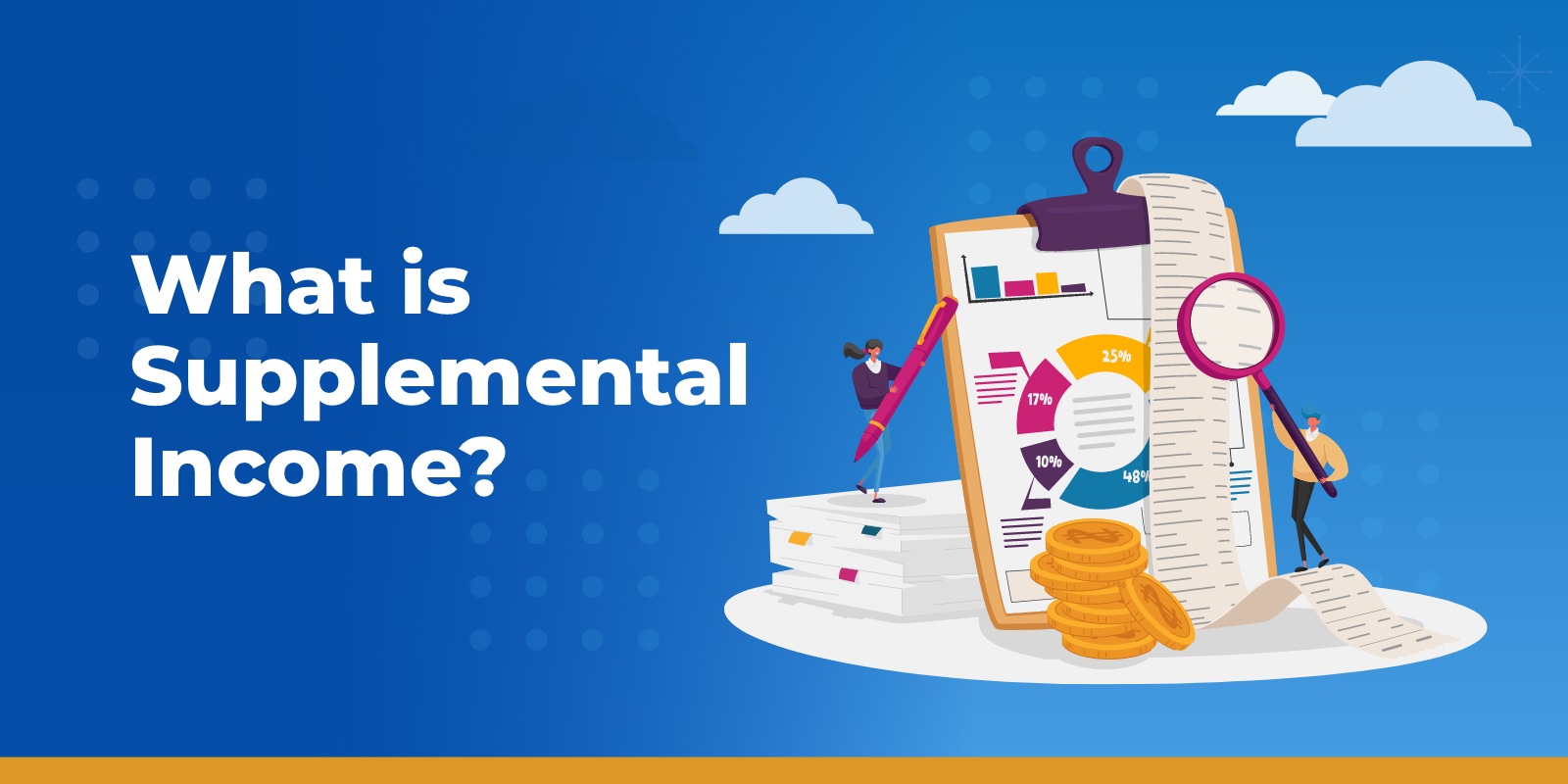
These days it is very common for individuals to have regular income, as well as supplemental income. While regular income earned through an employer typically has taxes withheld, some supplemental income does not. If you earn supplemental income, it’s important to learn how it is taxed and when. Here is a brief overview of supplemental income tax.
What Is Supplemental Income?
Supplemental income refers to additional earnings received beyond one’s primary source of income. It typically includes money earned from part-time jobs, freelance work, investments, rental properties, or other side ventures. The purpose of supplemental income is to supplement or add to the individual’s main source of income, providing extra financial support or flexibility. Even if you only work a regular 9 to 5 job, you may still earn supplemental income through any of the following sources:
- Bonuses
- Overtime pay
- Commissions
- Tips
- Prizes or awards
- Severance pay
- Back pay
- Payments for paid time off
- Taxable fringe benefits
Some taxpayers do not have regular income through an employer. Instead, they may earn supplemental income through contract work or through a business. Some examples of supplemental income for these groups are:
- Schedule E income
- Ridesharing service
- Sales made through an online shop
- Direct sales
How Is Supplemental Income Taxed?
How supplemental income is taxed depends on how the income is classified. For example, income reported on Schedule E will usually consist of estates, trust, real estate rental income, royalties, partnership and S corporation income, and residual interests in real estate mortgage investment conduits (REMICs).
Estates and Trusts
Beneficiaries pay tax on the income of the estate or trust they inherit at their regular income tax rates and at capital gains rates for any capital gains they receive. In addition, if the estate or trust does not distribute all the income to the beneficiaries it will pay tax on any undistributed income.
Royalties
If you are paid royalties for the use of any of your intangible assets, you will receive a Form 1099-MISC that tells you the amount of royalties to report on Schedule E. Royalties are taxed at your regular income tax rate.
Business Income from Partnerships and S-Corps
Taxes for S-Corps pass through to shareholders. Additionally, taxes for partnerships pass through to the partner’s personal income. The tax rate will depend on personal income rates.
Real Estate Rental Income
The tax rate for rental real estate varies from 10% to 37%, depending on your filing status and taxable income.
Tax Rates
Supplemental income for employees is based on personal income tax rates. However, the amount withheld will vary depending on whether your employer pays it out with your regular wages or separately. If it’s combined with your wages, the amount withheld will typically be withheld like wages. If they are paid out separately, employers can withhold at the IRS’s flat rate of 22%. Finally, taxpayers who earn $1 million in supplemental income, it will be taxed at 37%.
You should report supplemental income earned through gig, contract, or freelance work on your individual tax return using Schedule C. In addition, if you receive any 1099 Forms, you should use these to calculate your total income through independent work.
Tax Help for Supplemental Income Earners
Tax policy can change every now and then. If you earn any type of supplemental income, you should stay up to date on all the most recent changes in taxation rules. For example, in 2024 the rules for reporting income earned through Form 1099 are changing drastically. Being unprepared for a change in policy could lead to all sorts of issues. Examples include a large tax bill to an IRS audit. When in doubt, your best bet is to speak to a trusted tax professional to avoid a stressful tax issue. Regardless, if you need tax help, Optima and our team of experts are here.
If You Need Tax Help, Contact Us Today for a Free Consultation